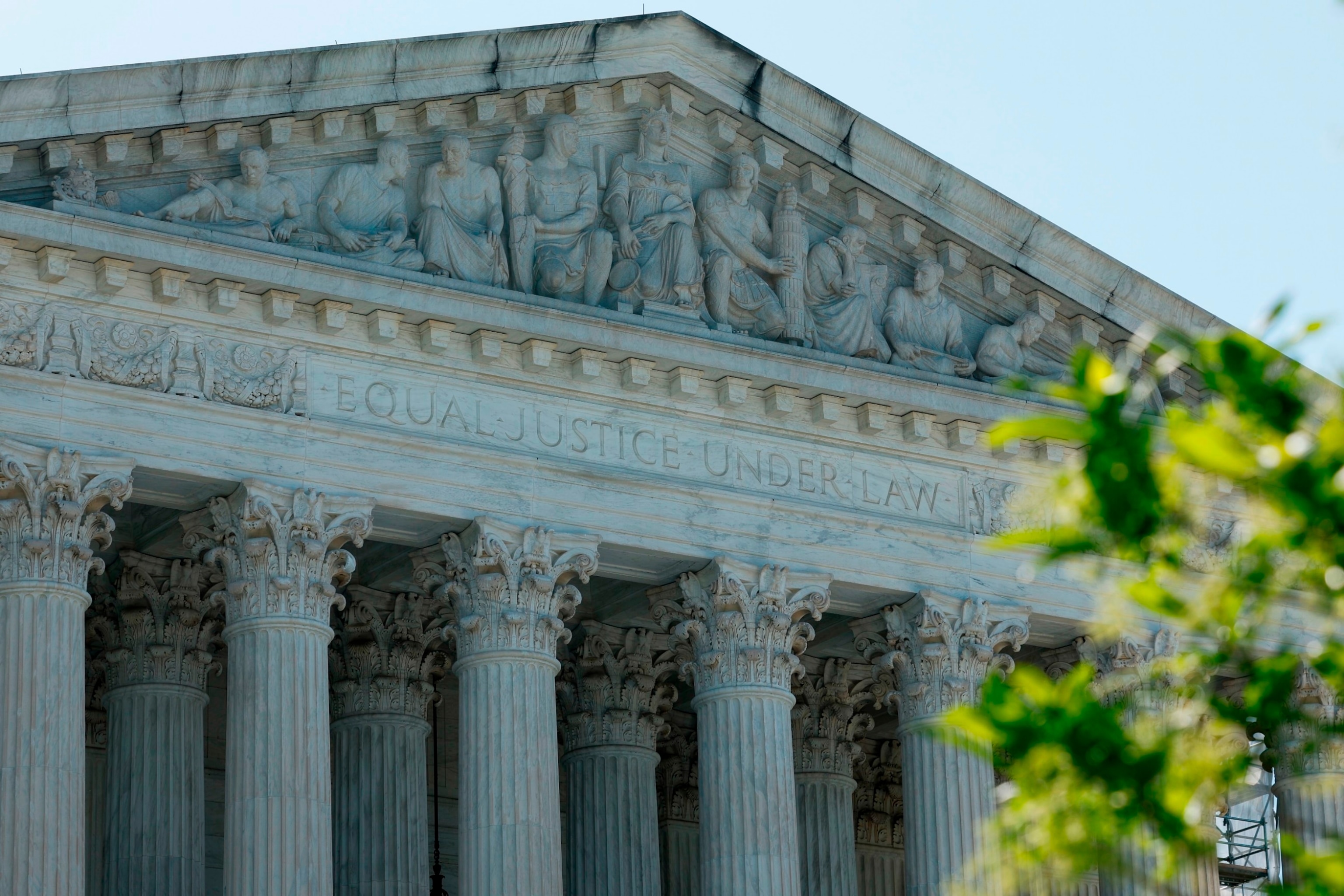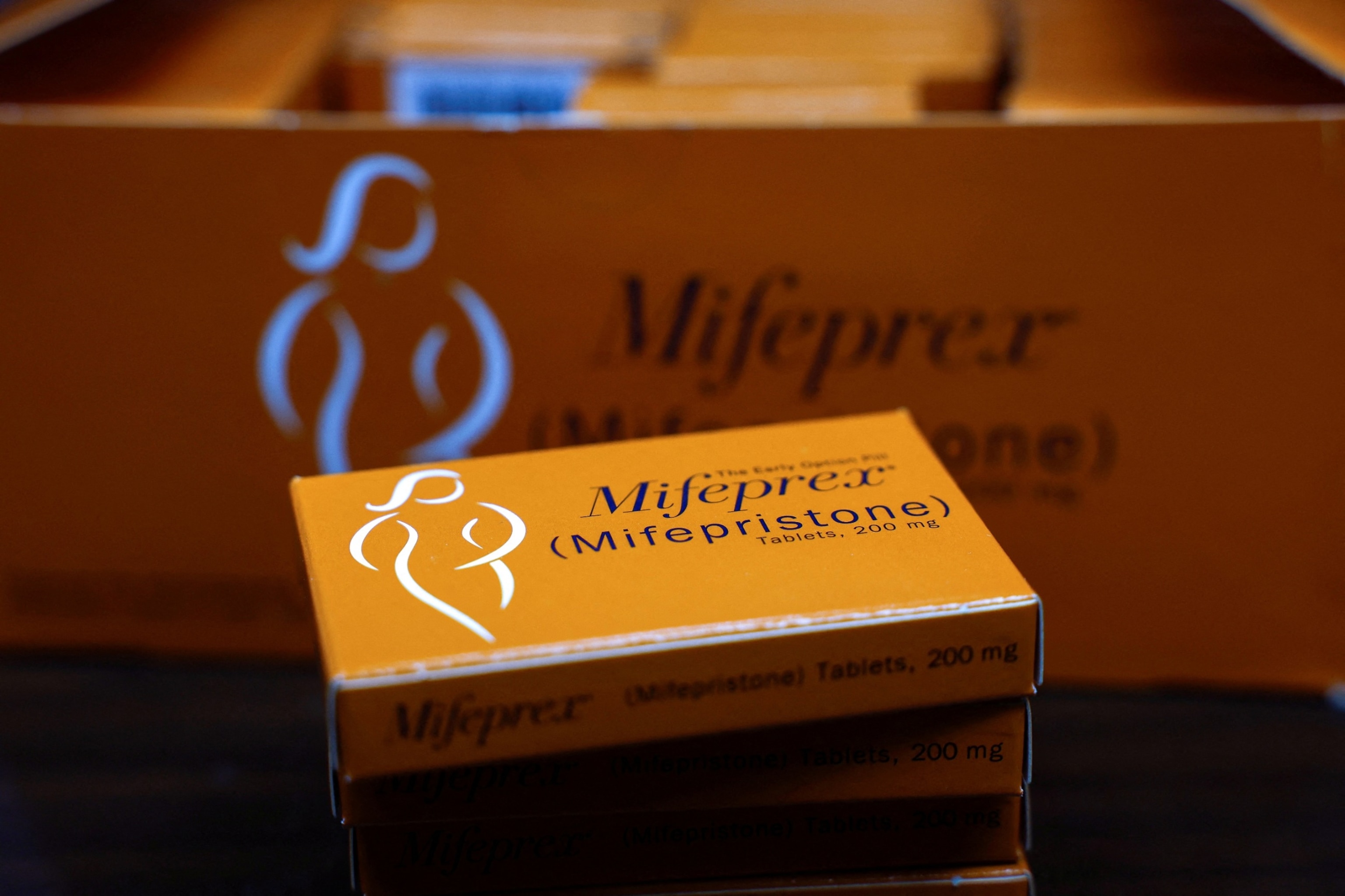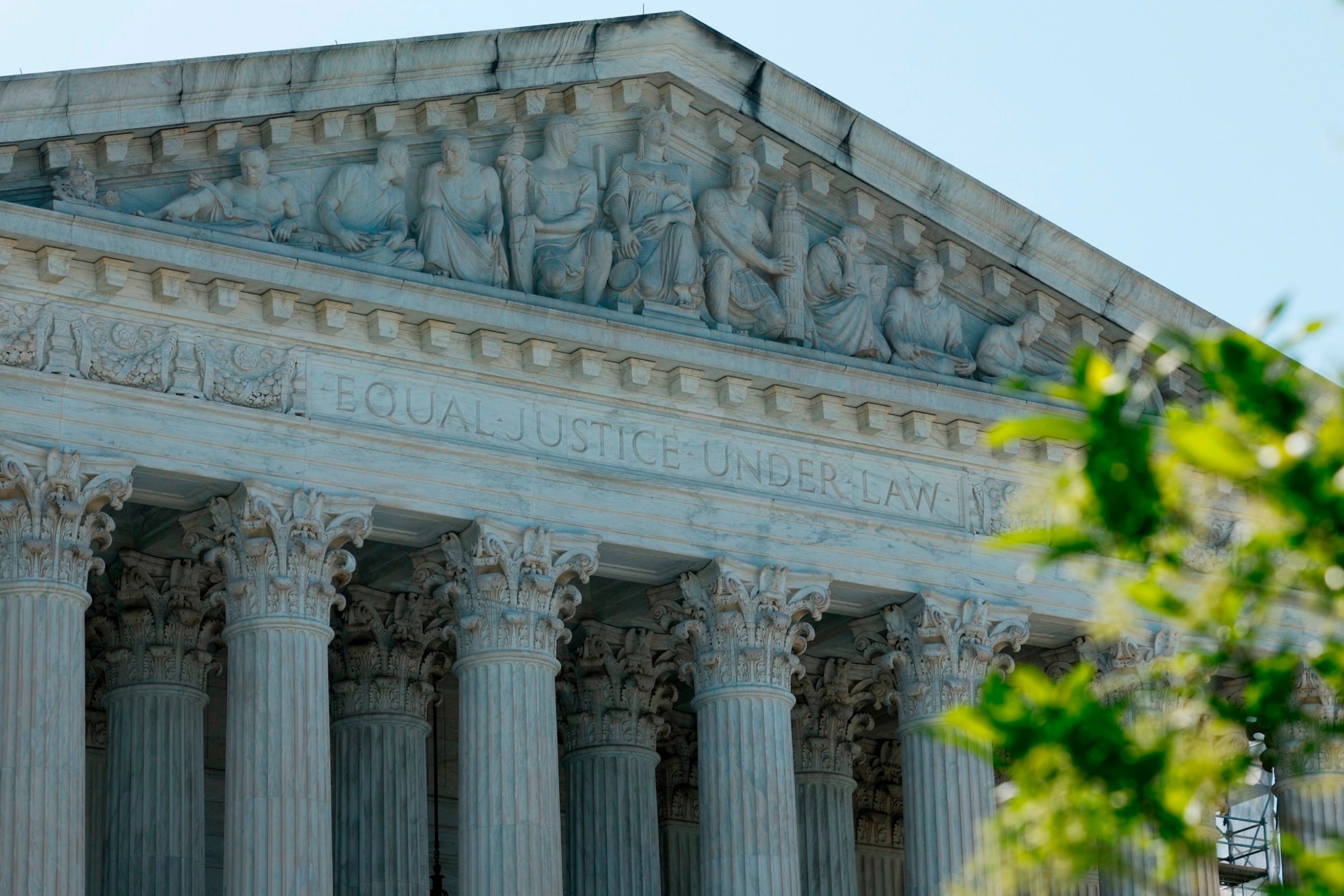The U.S. Supreme Court on Thursday ruled a group of doctors lacked legal standing to challenge the Food and Drug Administration’s regulation of the abortion pill mifepristone, preserving access to the medication nationwide.
The unanimous opinion was authored by Justice Brett Kavanaugh.
The case put abortion access back in the spotlight for the court after its conservative majority voted to overrule Roe v. Wade in 2022.
“Plaintiffs are pro-life, oppose elective abortion, and have sincere legal, moral, ideological, and policy objections to mifepristone being prescribed and used by others,” Kavanaugh wrote in the ruling. “Because plaintiffs do not prescribe or use mifepristone, plaintiffs are unregulated parties who seek to challenge FDA’s regulation of others.”
“Plaintiffs advance several complicated causation theories to connect FDA’s actions to the plaintiffs’ alleged injuries in fact. None of these theories suffices to establish Article III standing,” he concluded.

The U.S. Supreme Court Building is seen, April 23, 2024, in Washington.
Anna Moneymaker/Getty Images
Mifepristone is the first pill taken in a two-drug regimen for medication abortion, which is the most common method of abortion in the country.
The court’s ruling means mifepristone will remain available under preexisting conditions, which include allowing women to receive the medication by mail and without any in person dispensation requirement.
Though President Joe Biden said the decision “does not change the fact that the fight for reproductive freedom continues.”
“Women are being turned away from emergency rooms, or forced to go to court to plead for care that their doctor recommended or to travel hundreds of miles for care,” Biden said in a statement. “Doctors and nurses are being threatened with jail time, including life in prison, for providing the health care they have been trained to provide. And contraception and IVF are under attack.”
The case’s lead plaintiff, the Alliance for Hippocratic Medicine, argued on behalf of anti-abortion rights doctors that those regulations were unsound. The Biden administration defended the FDA’s process in court as being supported by science and decades of safe use.
But much of the March 25 arguments centered on the question of standing, and the court concluded the pill’s challengers “failed to demonstrate that FDA’s relaxed regulatory requirements likely would cause them to suffer an injury in fact.”
“For that reason, the federal courts are the wrong forum for addressing the plaintiffs’ concerns about FDA’s actions,” Kavanaugh wrote. “The plaintiffs may present their concerns and objections to the President and FDA in the regulatory process, or to Congress and the President in the legislative process.”

Boxes of Mifepristone, the first pill in a medical abortion, are seen at Alamo Women’s Clinic in Carbondale, Illinois, April 9, 2024.
Evelyn Hockstein/Reuters
Drug maker Danco, which fought to defend the pill, said the ruling was a huge win for the pharmaceutical industry which had warned against courts overriding the judgment of scientists and experts at FDA.
The court “maintained the stability of the FDA drug approval process, which is based on the agency’s expertise and on which patients, healthcare providers and the US pharmaceutical industry rely,” a Danco spokeswoman Abigail Long, said in a statement.
Abortion opponents decried the decision as “deeply disappointing.”
“It is a sad day for all who value women’s health and unborn children’s lives, but the fight to stop dangerous mail-order abortion drugs is not over,” said Susan B. Anthony Pro-Life America policy director Katie Daniel.
ABC News’ Alexandra Hutzler contributed to this report.
The Supreme Court recently made a unanimous ruling on a legal challenge to the abortion pill mifepristone, a decision that has significant implications for women’s reproductive rights in the United States. The case, known as FDA v. American College of Obstetricians and Gynecologists, centered around restrictions imposed by the Food and Drug Administration (FDA) on the distribution of mifepristone during the COVID-19 pandemic.
Mifepristone, also known as the abortion pill or RU-486, is a medication used in combination with another drug, misoprostol, to terminate early pregnancies. The FDA requires that mifepristone be dispensed in person at a medical facility, such as a doctor’s office or clinic, rather than being obtained through mail-order or telemedicine services. This requirement has been a point of contention for reproductive rights advocates, who argue that it creates unnecessary barriers to access for women seeking abortion care.
In response to the COVID-19 pandemic, the American College of Obstetricians and Gynecologists sued the FDA to challenge these restrictions, arguing that they posed a risk to public health by forcing women to make unnecessary in-person visits to healthcare facilities during a time when many were avoiding such visits due to the risk of exposure to the virus. The Supreme Court’s ruling sided with the plaintiffs, allowing for mifepristone to be distributed through mail-order and telemedicine services for the duration of the pandemic.
The decision was hailed as a victory for women’s reproductive rights and access to safe and effective abortion care. Advocates argued that the FDA’s restrictions on mifepristone were medically unnecessary and served only to limit women’s ability to make decisions about their own bodies and healthcare. By allowing for greater flexibility in how mifepristone is distributed, the Supreme Court’s ruling has the potential to increase access to abortion care for women across the country, particularly those in rural or underserved areas where healthcare facilities may be limited.
However, the fight for reproductive rights is far from over. The Supreme Court’s ruling only applies to the distribution of mifepristone during the COVID-19 pandemic, leaving open the possibility that the FDA could reinstate its restrictions once the public health emergency has passed. Additionally, with a conservative majority on the Court and ongoing efforts at the state level to restrict access to abortion care, advocates remain vigilant in their efforts to protect and expand women’s reproductive rights.
In conclusion, the Supreme Court’s unanimous ruling on the legal challenge to mifepristone represents a significant victory for women’s reproductive rights and access to safe and effective abortion care. By allowing for greater flexibility in how mifepristone is distributed, the Court has taken a step towards ensuring that women have the ability to make decisions about their own bodies and healthcare. However, the fight for reproductive rights is ongoing, and advocates must continue to push for policies that protect and expand access to abortion care for all women.



